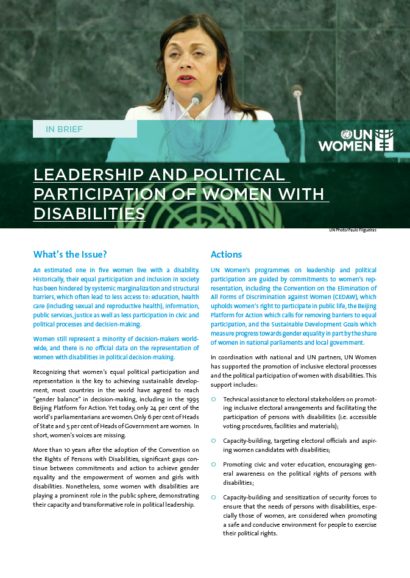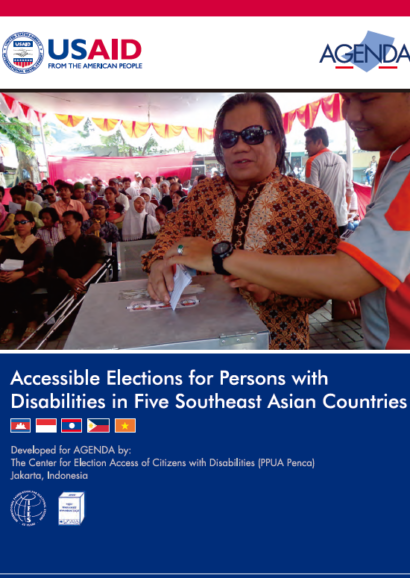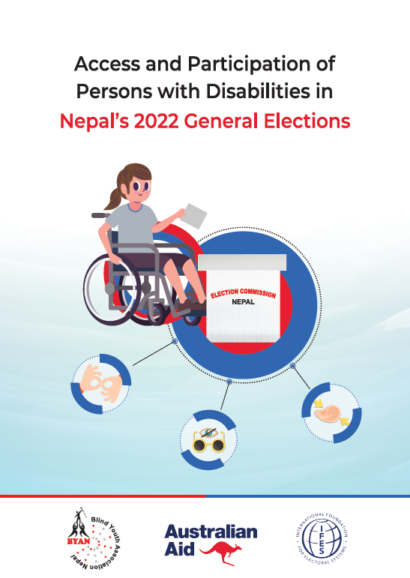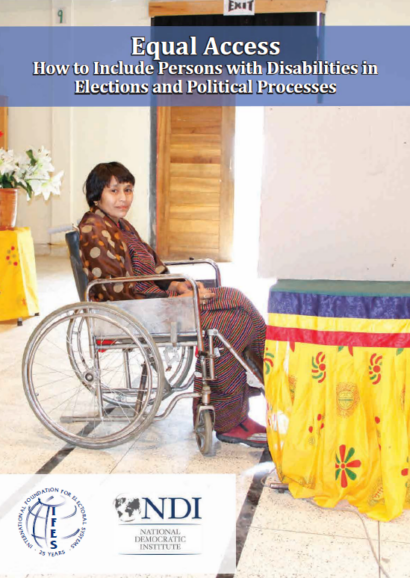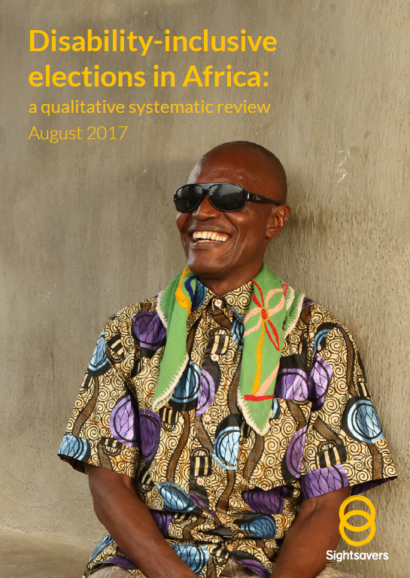UN Women (2022) Leadership and Political Participation of Women with Disabilities
This brief provides an overview of the barriers preventing women with disabilities form participating in political life.
Sightsavers (2023) Levels of participation of people with disabilities in inclusive local development
This document is a useful tool for measuring the participation of people with disabilities in inclusive local development, and the inclusiveness of policies and development plans.
Sightsavers (2022) Guide to inclusive local development
This guide was developed to promote local authority ownership and implementation of inclusive local development (ILD) approaches.
World Health Organisation & World Bank (2011) World Report on Disability
This report reviews evidence about the situation of people with disabilities around the world.
Humanity & Inclusion (2010) Rights in action: Good practices for inclusive local governance in West Africa
This report analyses examples of people with disabilities actively participating in local governance and influencing decision making in West Africa.
Organisation for Security and Co-operation in Europe (2019) Guidelines on Promoting the Political Participation of Persons with Disabilities
These guidelines are a practical resource for states to strengthen the ability of democratic institutions - particularly political parties and parliaments - to engage and empower people with disabilities in political processes.
AGENDA & the Center for Election Access of Citizens with Disabilities (2021) Accessible Elections for Persons with Disabilities in Five Southeast Asian Countries
This report examines accessible elections for people with disabilities in five Southeast Asian countries: Indonesia, Cambodia, the Philippines, Lao PDR, and Vietnam.
Blind Youth Association Nepal & International Foundation for Electoral Systems (2023) Access and Participation of Persons with Disabilities in Nepal’s 2022 General Elections
This document provides findings from observations of 2022 Nepali elections in relation to their accessibility for and inclusion of people with disabilities.
International Foundation for Electoral Systems (2017) Equal Access: How to Include Persons with Disabilities in Elections and Political Processes
This publication provides governments, civil society and the donor community the requisite tools and knowledge to promote the participation of persons with disabilities in elections and political processes.
Sightsavers (2017) Disability-inclusive elections in Africa: A qualitative systematic review
This systematic review aims to identify, appraise and synthesise all available evidence to understand what experiences and practices have already taken place in African countries to support political participation of people with disabilities.
Special Rapporteur on the rights of persons with disabilities (2018) Report of the Special Rapporteur on the rights of persons with disabilities to equal recognition before the law
This report establishes a path towards universal legal capacity on the basis of the Convention on the Rights of Persons with Disabilities (CRPD) and other international human rights treaties.
UNCRPD (2014) General Comment No. 1 – Article 12 : Equal recognition before the law
General Comment No. 1 of the CRPD clarifies the obligations of States parties under Article 12 of the Convention on the Rights of Persons with Disabilities (CRPD).
UN Women and Women Enabled International (2022) Access to Justice for Women with Intellectual and Psychosocial Disabilities in Asia and the Pacific
This brief analyses the key barriers women with intellectual and psychosocial disabilities face in accessing justice and proposes targeted actions to close the justice gap.
ESCAP (2022) Harmonisation of national laws with the convention on the rights of persons with disabilities: Overview of trends in Asia and the Pacific
This report studies the trends of Asian and Pacific countries in harmonising their national laws with the Convention on the Rights of Persons with Disabilities (CRPD).

